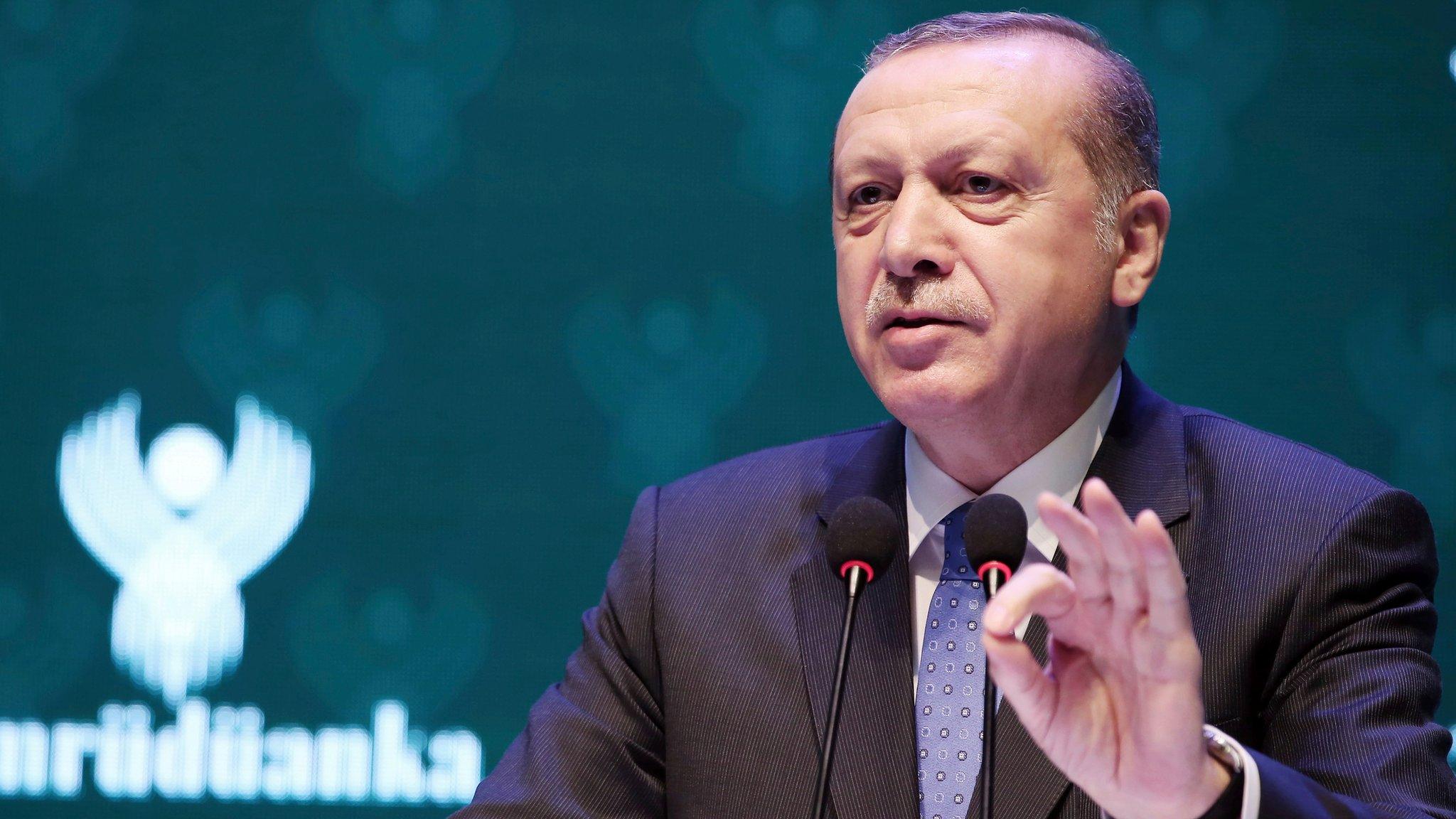Germany warns citizens of Turkey risks amid arrests
- Published
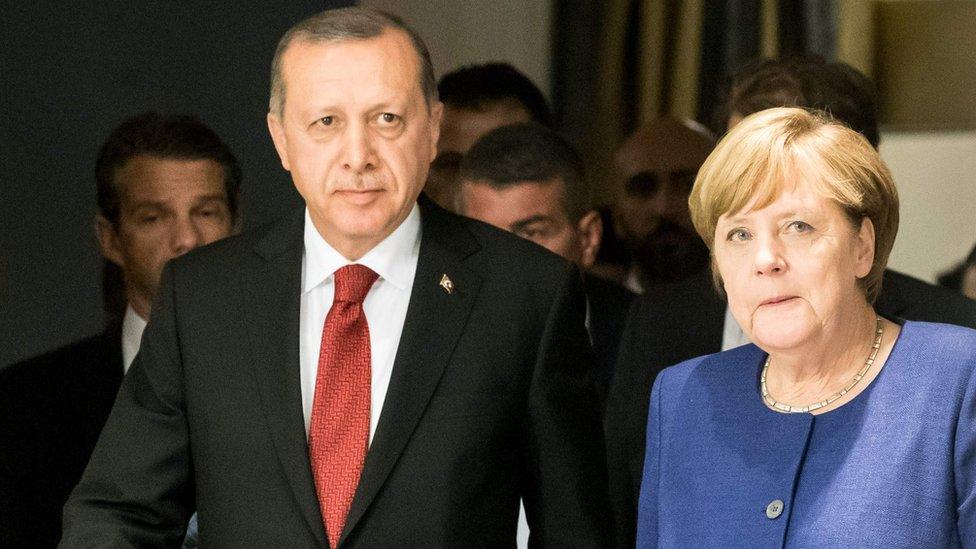
President Erdogan and Chancellor Angela Merkel met at the G20 in Hamburg this month
The German government has warned its citizens and firms they face the risk of "arbitrary" arrest in Turkey.
"People who are travelling to Turkey for private or business reasons are urged to exercise increased caution," the German foreign ministry said.
Firms face investment risks in Turkey because of Turkish legal deficiencies, the ministry said.
Turkey reacted angrily, saying Germany had a "one-sided, distorted approach" that was "unacceptable".
German Foreign Minister Sigmar Gabriel's criticism related to the Turkish authorities' crackdown on political opponents since the abortive coup against President Recep Tayyip Erdogan a year ago.
Germany protested to Turkey's Berlin ambassador on Wednesday over the arrest of six human rights activists.
The six include a German citizen, Peter Steudtner, and Amnesty International's Turkey director, Idil Eser.
Turkey's coup attempt - in numbers
The Turkish foreign ministry hit back, accusing Germany of "blackmail and threats" and "direct interference in the Turkish judiciary".
It demanded that Germany respect Turkey's need to combat "terror" organisations and that both countries "focus on long-term mutual goals".
The escalation could threaten Turkish holiday bookings - tourists from Germany were the most numerous last year, at nearly four million.
President Erdogan launched a huge purge of state institutions after rogue military officers tried to topple him a year ago.
More than 50,000 people have been arrested since the failed coup, including more than 170 journalists and many opposition politicians, academics and activists.
Mr Erdogan accused US-based Muslim cleric Fethullah Gulen of masterminding the abortive coup. The purge of the armed forces, judiciary, police and education sector has seen more than 140,000 people dismissed from their jobs.
Turkey's detention of Deniz Yücel, a German-Turkish journalist with the Berlin daily Die Welt, is another sore point in the two Nato allies' relations. He was arrested in February on terror charges, which he has denied.
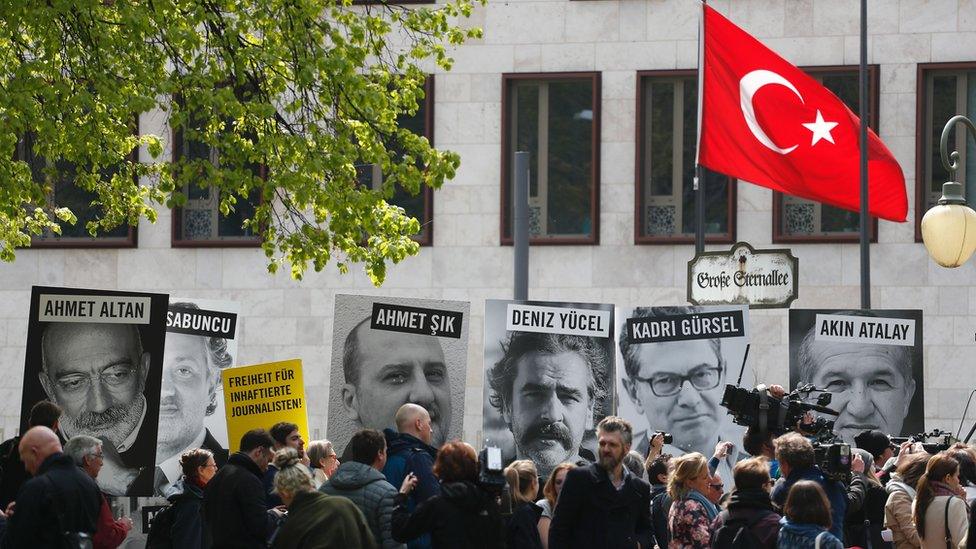
Activists staged a press freedom rally outside the Turkish embassy in Berlin in May
Foreign Minister Gabriel said his new warning on Turkey had been agreed with Chancellor Angela Merkel's Christian Democrats (CDU).
There is intense rivalry between Mr Gabriel's Social Democrats (SPD) and the CDU as Germany gears up for a September general election.
Relations under review
Mr Gabriel condemned restrictions on consular access for the Germans detained in Turkey. "Germans are not secure from arbitrary arrests," he warned.
"We want Turkey to become part of the West, but it takes two to tango," he said.
"We cannot go on as before. We have to spell it out clearer than before, so that Ankara politicians understand that such a policy has consequences."
He said Germany would ask its EU partners to review the bloc's negotiations with Turkey on customs union arrangements and on Turkey's EU accession bid.
Germany will also review its Hermes export credits from which Turkey benefits. The Hermes scheme provides extra insurance for German firms investing in Turkey.
Turkey has handed Mrs Merkel's government a list of 68 German companies and individuals accused of supporting the "terrorist" Gulen movement, Germany's Die Zeit website reports., external Industrial giants BASF and Daimler are reportedly on the list, as well as various small firms.
Die Zeit says German officials have dismissed the list as "absurd".
Mr Erdogan's Islamist-rooted AK Party has a parliamentary majority, and in April he narrowly won a referendum paving the way for a much more powerful presidency.
- Published7 July 2017
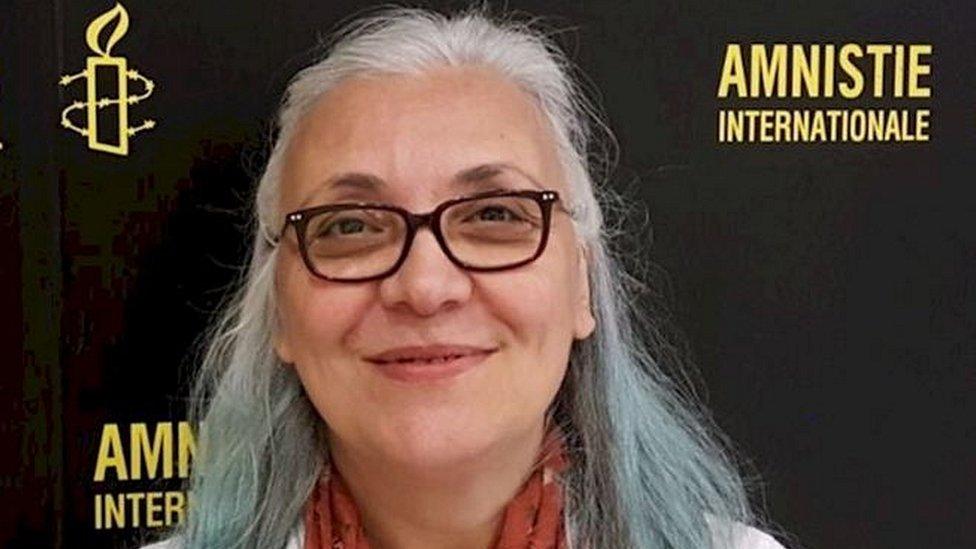
- Published29 June 2017
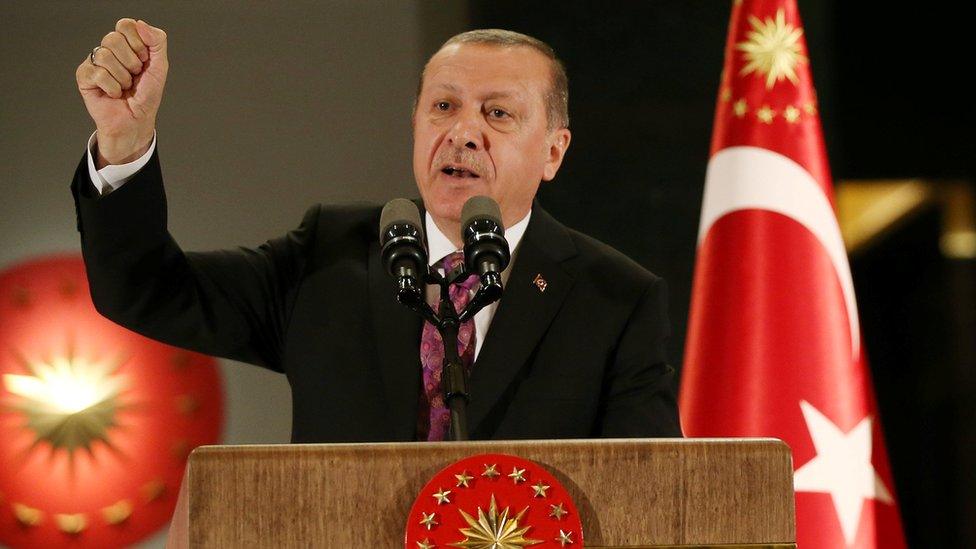
- Published21 June 2017

- Published3 March 2017
